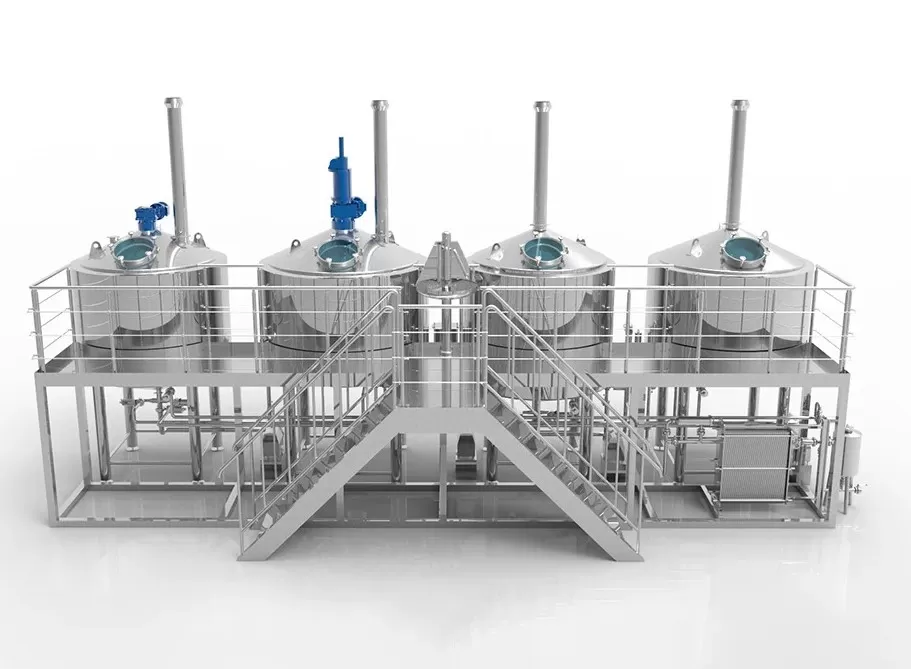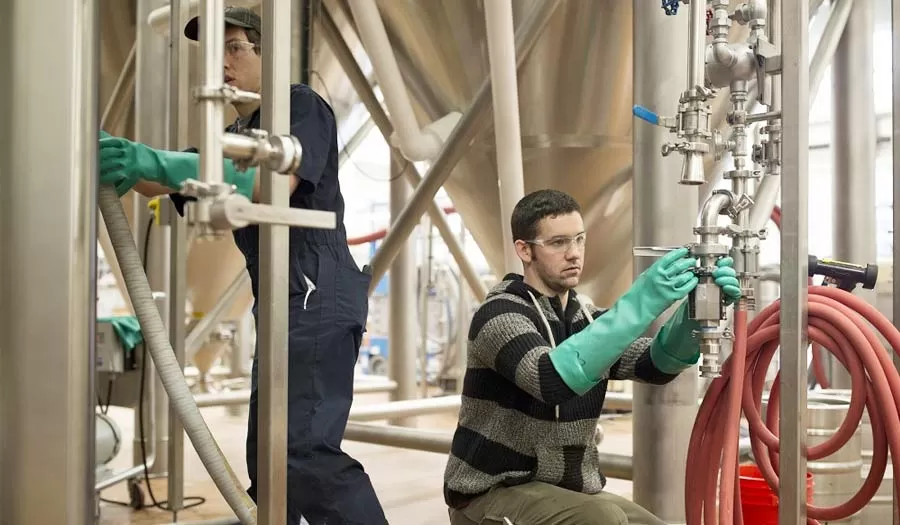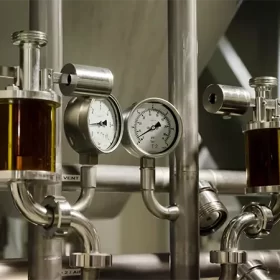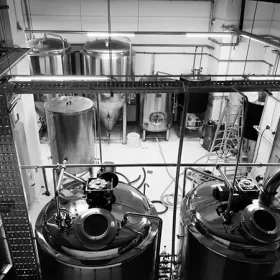Commercial fermentation tanks play a pivotal role in various industries, revolutionizing the production of fermented products on a large scale. From breweries to pharmaceutical companies, these tanks enable efficient and controlled fermentation processes, resulting in high-quality products. In this article, we will delve into the world of commercial fermentation tanks, exploring their types, key features, applications, benefits, maintenance, and how to choose the right tank for specific needs.
Introduction
Fermentation, the metabolic process in which sugars are converted into alcohol or acids, has been utilized for centuries in the production of food, beverages, and other valuable products. With advancements in technology, commercial fermentation tanks have become indispensable for industries that rely on controlled fermentation processes to achieve consistent and reliable outcomes.
Types of Commercial Fermentation Tanks
Stainless Steel Fermentation Tanks
Stainless steel fermentation tanks are the most commonly used tanks in commercial settings. They offer several advantages such as durability, resistance to corrosion, and ease of cleaning. These tanks also provide excellent temperature control, ensuring optimal conditions for fermentation. Moreover, stainless steel tanks are highly customizable, allowing for the integration of additional features to suit specific production requirements.
Glass Fermentation Tanks
Glass fermentation tanks, although less common, are favored in industries where visibility is crucial. These tanks provide a clear view of the fermentation process, allowing operators to monitor and control the progress visually. Additionally, glass tanks are impermeable, ensuring the purity of the final product and eliminating the risk of chemical reactions with the tank material.
Plastic Fermentation Tanks
Plastic fermentation tanks offer a cost-effective alternative to stainless steel and glass tanks. They are lightweight, easy to handle, and resistant to certain chemicals. Plastic tanks are commonly used in smaller-scale operations or industries where portability and flexibility are essential. However, they may not be suitable for applications that require precise temperature control or long-term storage.
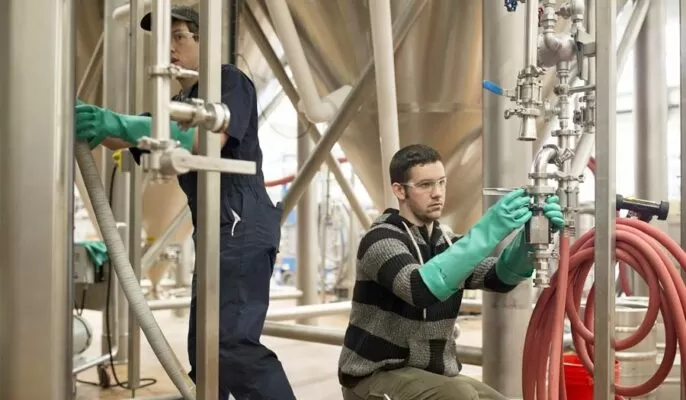
Key Features to Consider in Commercial Fermentation Tanks
When selecting a commercial fermentation tank, several key features should be taken into account to ensure optimal performance and product quality.
Capacity and Size
The tank’s capacity and size should align with the production volume requirements. Considerations should be given to the available space, production scalability, and future growth prospects. It is important to choose a tank that can accommodate the desired volume of fermentation while allowing room for expansion if needed.
Temperature Control
Maintaining precise temperature control is crucial during fermentation. The tank should have effective insulation and temperature regulation systems to create and sustain the desired fermentation environment. Temperature sensors and heating/cooling mechanisms are often integrated into commercial fermentation tanks to ensure optimal fermentation conditions. This ensures that the temperature remains within the specified range for the specific fermentation process, promoting the growth and activity of the desired microorganisms.
Pressure Control
Certain fermentation processes require specific pressure conditions. The tank should have the ability to control and adjust internal pressure accordingly. Pressure relief valves and pressure monitoring systems are essential features to prevent any unwanted pressure build-up that could compromise the fermentation process or the integrity of the tank. Controlling the pressure ensures that the fermentation proceeds smoothly without any issues caused by excessive or inadequate pressure levels.
Agitation and Mixing
Proper agitation and mixing are necessary to ensure the uniform distribution of nutrients, oxygen, and microorganisms within the fermentation tank. The tank should be equipped with agitators or mixing systems that can gently stir or circulate the fermentation mixture without causing excessive shear forces or damaging the product. Adequate mixing promotes efficient fermentation and helps to maintain consistent conditions throughout the tank, leading to more uniform product quality.
Sterilization and Cleaning
Maintaining a sterile and clean environment is vital to prevent contamination and maintain product quality. Commercial fermentation tanks should have effective sterilization and cleaning mechanisms. Features such as CIP (Clean-in-Place) systems, spray balls, and easy access for thorough cleaning and sanitation procedures are essential for efficient operation. Proper cleaning and sterilization prevent the growth of unwanted microorganisms that could negatively impact the fermentation process or compromise the quality of the final product.
By considering these key features when selecting a commercial fermentation tank, businesses can ensure optimal performance, precise control over fermentation parameters, and high-quality products. Each feature plays a critical role in creating and maintaining the ideal fermentation environment, promoting efficient microbial activity, and achieving consistent and desirable fermentation outcomes.
Applications of Commercial Fermentation Tanks
Commercial fermentation tanks find applications across various industries, where controlled fermentation processes are key to production.
Food and Beverage Industry
In the food and beverage industry, commercial fermentation tanks play a crucial role in the production of a wide range of fermented foods and beverages. These tanks are used in the production of yogurt, cheese, sauerkraut, kimchi, and other fermented foods. In the brewing industry, fermentation tanks are essential for the production of beer, cider, and wine. They provide a controlled environment for the fermentation process, ensuring consistent and desirable flavors, textures, and alcohol content in the final products.
Pharmaceutical Industry
The pharmaceutical industry relies on commercial fermentation tanks for the production of various pharmaceutical products. Antibiotics, enzymes, vaccines, and other pharmaceutical compounds are often produced through fermentation processes. Commercial fermentation tanks provide a controlled environment for the growth and metabolic activities of microorganisms or cells used in the production of these pharmaceutical products. The tanks allow for optimal conditions to support the production of high-quality pharmaceutical compounds.
Biofuel Production
In the field of biofuel production, commercial fermentation tanks are instrumental in the production of biofuels such as ethanol. Microorganisms, such as yeast or bacteria, ferment biomass feedstock to convert sugars into biofuels. Commercial fermentation tanks provide the necessary environment and conditions for these microorganisms to efficiently carry out the fermentation process. The tanks are designed to optimize the conversion of biomass into biofuels, resulting in high yields of ethanol and other biofuel products.
Agricultural and Animal Feed Industry
Commercial fermentation tanks have significant applications in the agricultural and animal feed industry. They are used for the production of silage and fermented animal feed. Fermentation enhances the nutritional value of feed and improves its digestibility for livestock. Commercial fermentation tanks create an environment where beneficial microorganisms can efficiently ferment the feed materials, resulting in higher-quality and more nutritious animal feed. This fermentation process also helps to reduce spoilage and improve the preservation of the feed.
In summary, commercial fermentation tanks find extensive applications in the food and beverage industry, pharmaceutical industry, biofuel production, and agricultural and animal feed industry. These tanks provide the controlled environment necessary for optimal fermentation processes, ensuring the production of high-quality, consistent, and desirable products in various sectors.
Benefits of Using Commercial Fermentation Tanks
The utilization of commercial fermentation tanks offers several advantages for industries relying on controlled fermentation processes.
Improved Productivity and Efficiency
Commercial fermentation tanks enable large-scale production with consistent and reproducible outcomes. The controlled environment and optimized process parameters lead to increased productivity and reduced batch-to-batch variations. This results in efficient use of resources, reduced production time, and improved overall efficiency. The tanks provide a stable and controlled environment for fermentation, allowing for precise control over factors such as temperature, pressure, and agitation. This consistency in conditions leads to more efficient fermentation processes and higher productivity.
Enhanced Quality Control
Precise control over fermentation conditions ensures the production of high-quality products with desired attributes, such as taste, aroma, and nutritional value. Commercial fermentation tanks allow for strict monitoring and adjustment of parameters, enabling better quality control throughout the fermentation process. The tanks provide a controlled environment that minimizes the risk of contamination and ensures optimal conditions for the growth and activity of specific microorganisms involved in the fermentation process. This results in consistent product quality and characteristics, meeting the desired standards and customer expectations.
Scalability and Flexibility
Commercial fermentation tanks offer scalability, accommodating varying production volumes. They can be designed to meet specific capacity requirements, allowing for expansion or downsizing as needed. Whether a business needs to increase production capacity or adapt to changing market demands, commercial fermentation tanks provide the flexibility to scale production accordingly. Additionally, these tanks can be customized to suit different fermentation processes, allowing for versatility in accommodating various types of products and fermentation requirements.
Cost-effectiveness
While the initial investment in commercial fermentation tanks may be higher compared to smaller-scale equipment, their long-term cost-effectiveness becomes evident. These tanks are designed for durability and longevity, minimizing the need for frequent replacements. The use of commercial fermentation tanks also contributes to cost savings through increased productivity, improved efficiency, and reduced batch variations. Additionally, the ability to control fermentation conditions precisely minimizes the risk of product wastage or quality issues, resulting in cost savings and higher overall profitability.
In conclusion, commercial fermentation tanks offer several benefits, including improved productivity and efficiency, enhanced quality control, scalability, flexibility, and long-term cost-effectiveness. These advantages make them indispensable for industries relying on controlled fermentation processes to produce high-quality products consistently.
Maintenance and Care of Commercial Fermentation Tanks
Proper maintenance and care are essential to ensure the longevity and optimal performance of commercial fermentation tanks. By following recommended maintenance practices, businesses can maximize the lifespan of their tanks and minimize the risk of operational issues. Here are key aspects to consider:
Regular Cleaning and Sanitization
Regular cleaning and sanitization are crucial to prevent microbial contamination and maintain product quality. After each batch, the tank should be thoroughly cleaned to remove any residue or organic matter that could harbor bacteria or other contaminants. Implementing effective sanitization protocols is also essential to ensure a sterile environment for the next fermentation cycle. This includes using approved cleaning agents and sanitizers, following proper procedures, and adhering to industry regulations and guidelines.
Preventive Maintenance
Regular inspection and preventive maintenance help identify and address issues before they escalate, minimizing downtime and costly repairs. It is important to conduct routine checks on the tank’s components, including seals, gaskets, valves, and fittings, to ensure they are in good condition. Monitoring temperature and pressure sensors is essential to verify their accuracy and functionality. Agitators and mixing systems should be inspected to ensure smooth operation and prevent issues such as excessive wear or malfunction. Additionally, lubricating moving parts and checking for leaks should be part of preventive maintenance practices.
Inspection and Troubleshooting
Periodic inspections should be conducted to identify any signs of wear, corrosion, or damage to the tank and its components. This includes checking for leaks, inspecting welds, and assessing the condition of insulation or cladding. Any abnormal observations should be promptly addressed to prevent further deterioration or potential safety risks. In the event of operational issues or deviations from expected performance, troubleshooting should be performed to diagnose and rectify the problem. This may involve assessing system controls, monitoring devices, and ensuring that all equipment is functioning properly.
By prioritizing regular cleaning, implementing preventive maintenance practices, and conducting thorough inspections, businesses can extend the lifespan of their commercial fermentation tanks and maintain their optimal performance. It is also essential to follow manufacturer guidelines and consult industry experts for specific maintenance recommendations tailored to the tank’s design and materials. Proper maintenance and care contribute to the overall efficiency, productivity, and quality of fermentation processes.
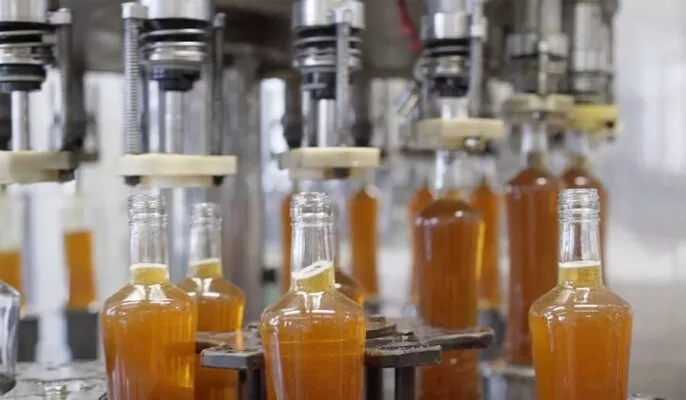
Choosing the Right Commercial Fermentation Tank
Selecting the appropriate commercial fermentation tank requires careful consideration of specific process requirements and constraints. By following a systematic approach and considering key factors, businesses can make an informed decision that aligns with their production needs and budget. Here are important aspects to consider:
Assessing the Process Requirements
Understanding the fermentation process is essential in determining the appropriate tank. Consider factors such as temperature and pressure requirements, agitation needs, and volume considerations. Evaluate the specific product characteristics, fermentation duration, and any specialized requirements for the desired outcome. By assessing these process requirements, you can narrow down the options and choose a tank that meets the specific needs of your fermentation process.
Budget Considerations
Budget constraints play a significant role in selecting a commercial fermentation tank. It is essential to balance cost considerations with the required features and quality standards. Determine the budget available for acquiring the tank and evaluate the cost-effectiveness of different options. Consider not only the initial investment but also the long-term benefits and potential savings in terms of productivity, quality, and maintenance. It is advisable to evaluate the return on investment to make an informed decision that aligns with your financial capabilities.
Consulting with Experts
Seeking advice from industry experts, fermentation engineers, or equipment suppliers can provide valuable insights and recommendations. These professionals have in-depth knowledge and experience in the field and can guide you in selecting the most suitable tank for your specific requirements. They can assess your process needs, offer expertise on tank specifications, and provide insights into industry best practices. Consulting with experts ensures that you make an informed decision based on reliable information and expertise.
By assessing the process requirements, considering budget constraints, and seeking expert advice, businesses can choose the right commercial fermentation tank. This decision is crucial as it directly impacts the efficiency, productivity, and quality of the fermentation process. Investing time and effort in selecting the appropriate tank will result in a smooth and successful fermentation operation, leading to high-quality products and optimal outcomes.
Conclusion
Commercial fermentation tanks have revolutionized industries reliant on controlled fermentation processes. From the production of food and beverages to pharmaceuticals and biofuels, these tanks provide a controlled environment for optimal fermentation. By considering key features, such as temperature and pressure control, agitation, and sterilization, industries can maximize productivity, enhance quality control, and achieve cost-effectiveness. Proper maintenance, regular cleaning, and preventive care are essential for prolonging the lifespan and ensuring the performance of commercial fermentation tanks.



